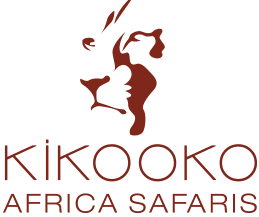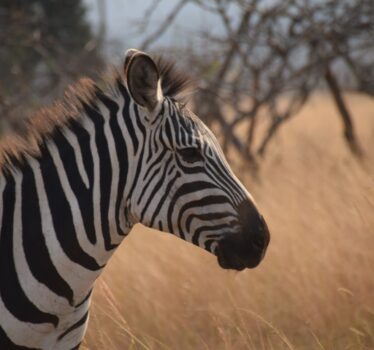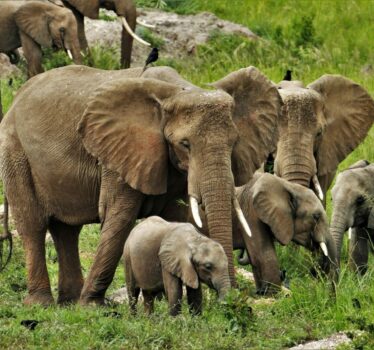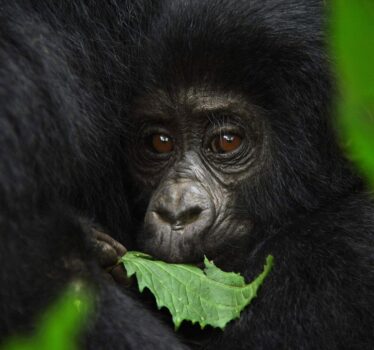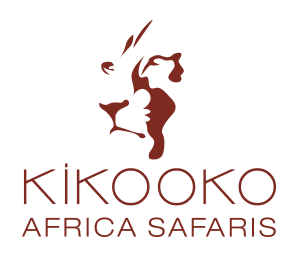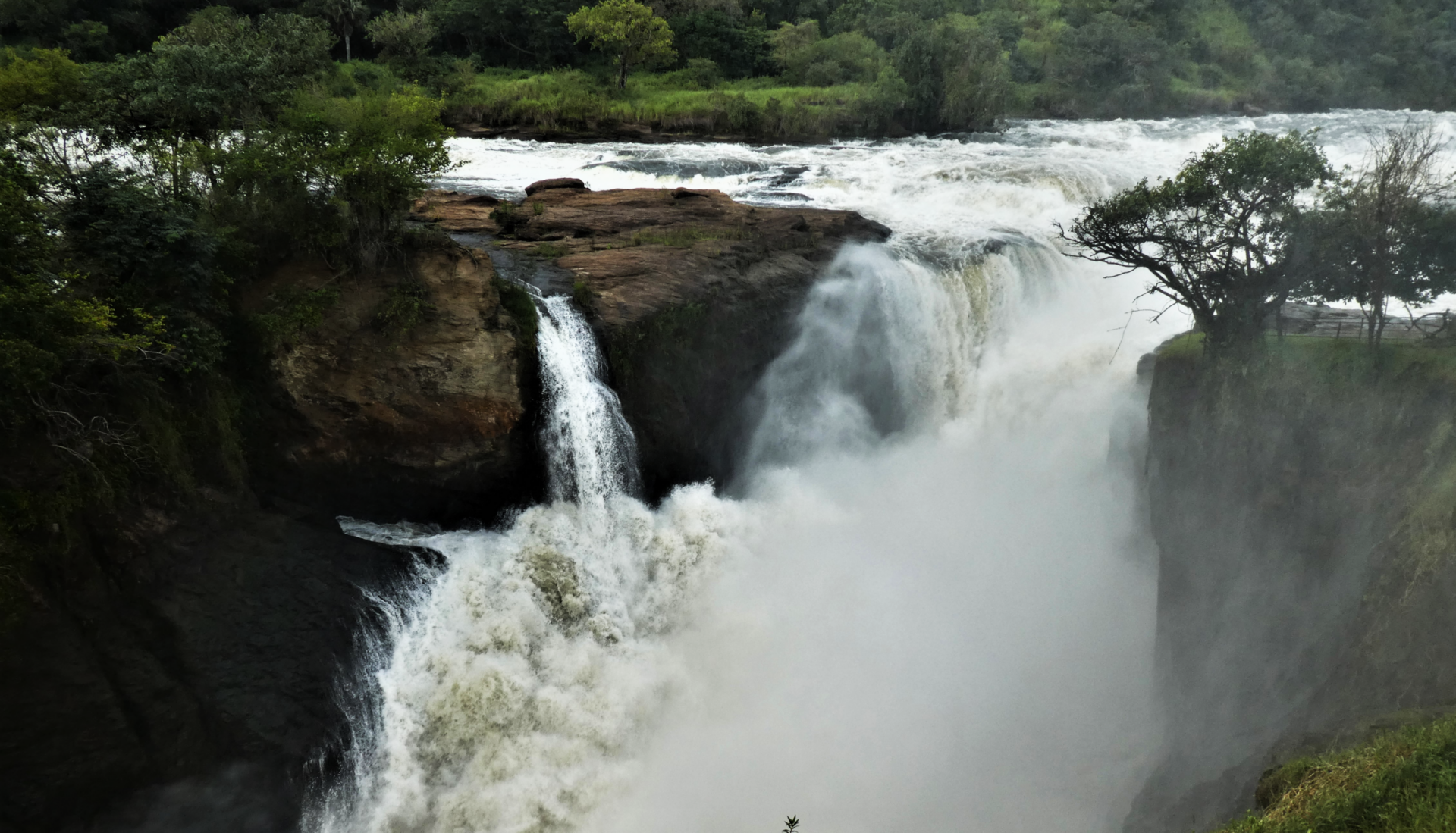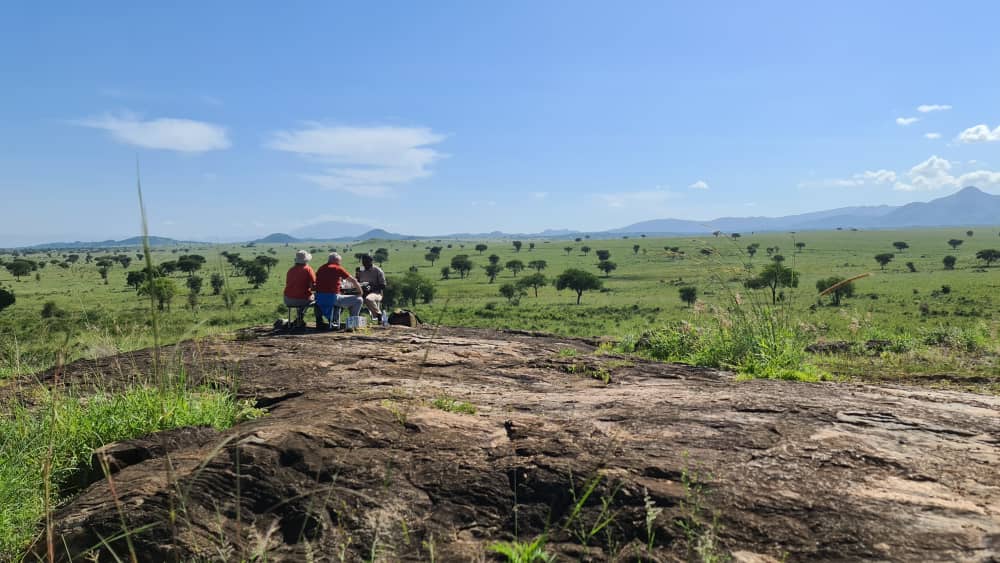Rwanda, the Heart of Africa
From the volcanic Virunga Mountains in the north to the lush rainforests in the west, Rwanda boasts an ever-changing landscape that leaves visitors in awe.
Streams and rivers criss-cross through the land, feeding a multitude of lakes, each home to unique wildlife and ecosystems waiting to be explored.
Such is the beauty and diversity of Rwanda that it has earned the nickname “Land of a Thousand Hills,” a perfect description for this incredible place.
Journey Into Rwanda's Thousand Hills
In addition to its primate population, Rwanda is also home to a diverse range of wildlife, including elephants, lions, leopards, buffalo, and antelopes. Visitors can see these animals on guided game drives through the savannas of Akagera National Park, or on a trek through the forested hills of Volcanoes National Park. Over 700 species of birds can also be found in Rwanda, making it a paradise for birdwatchers.
A Harrowing History, A Bright Future
Kigali, the capital city, is a shining example of this transformation. The city is renowned for its cleanliness, orderliness, and modern infrastructure, and it’s hard to believe that just a few decades ago, it was the site of unimaginable violence and chaos. However, despite the city’s modernity, visitors can still see the remnants of the tragedy that took place here, with memorials and museums dedicated to honoring the victims and educating visitors about the genocide.
The Wildlife of Rwanda
-
Mountain Gorillas
Rwanda is one of the only places on the planet where you can encounter mountain gorillas, making it an excellent spot to see these incredible creatures up close in their natural habitat.
-
Elephants
Rwanda's national parks are home to a variety of wildlife, including elephants, which can be seen roaming the savannas and forests of the country.
-
Birds
With over 700 species of birds, including several endemic species, Rwanda is a birdwatcher's paradise. Visitors can spot everything from colorful sunbirds to rare forest-dwelling species while exploring the country's national parks and reserves.
-
Chimpanzees
The dense forests of Rwanda are also home to several families of chimpanzees, providing a unique opportunity for visitors to observe these intelligent primates in their natural environment.
Our Rwanda Safari Itineraries
Below we have a few of our popular itineraries. These are great starting points that will show you what the Pearl of Africa has in store for you.
From $7449
Per Person
From $9878
Per Person
From $3058
Per Person
"In all my travels, I've never seen a country's population more determined to forgive, and to build and succeed than in Rwanda"
Rick Warren
Rwanda Highlights
- A safari in Rwanda isn’t complete without being in the presence of the awe-inspiring mountain gorilla, often touted as the best wildlife experience in Africa
- The lush Nyungwe Forest is home to a diverse range of primates, including habituated chimpanzees
- Relax during a sunset cruise on Lake Kivu, an iconic African lake renowned for its beauty and tranquility.
- Gain a deep insight into Rwanda’s history by visiting the Genocide Museum in Kigali
- Rwanda’s government has taken great care to ensure a safe and friendly environment for visitors, with locals known for their welcoming nature
- Bike alongside the Congo Nile Trail
Picture Yourself in Rwanda
Parks & Places in Rwanda
From gorilla trekking in the lush forests to exploring the modern city of Kigali, Rwanda has something to offer for every type of traveler.
Below we share you three of the must-see places in Rwanda, along with a link to more detail on Rwanda’s many destinations.
Volcanoes National Park | Home of the Majestic Mountain Gorilla
This park is home to the endangered mountain gorillas and is one of the few places in the world where visitors can go on a gorilla trekking adventure. It’s a once-in-a-lifetime experience that offers an up-close encounter with these gentle giants in their natural habitat. Apart from gorilla trekking, visitors can also enjoy hiking through the park’s stunning scenery, which includes a chain of dormant volcanoes.
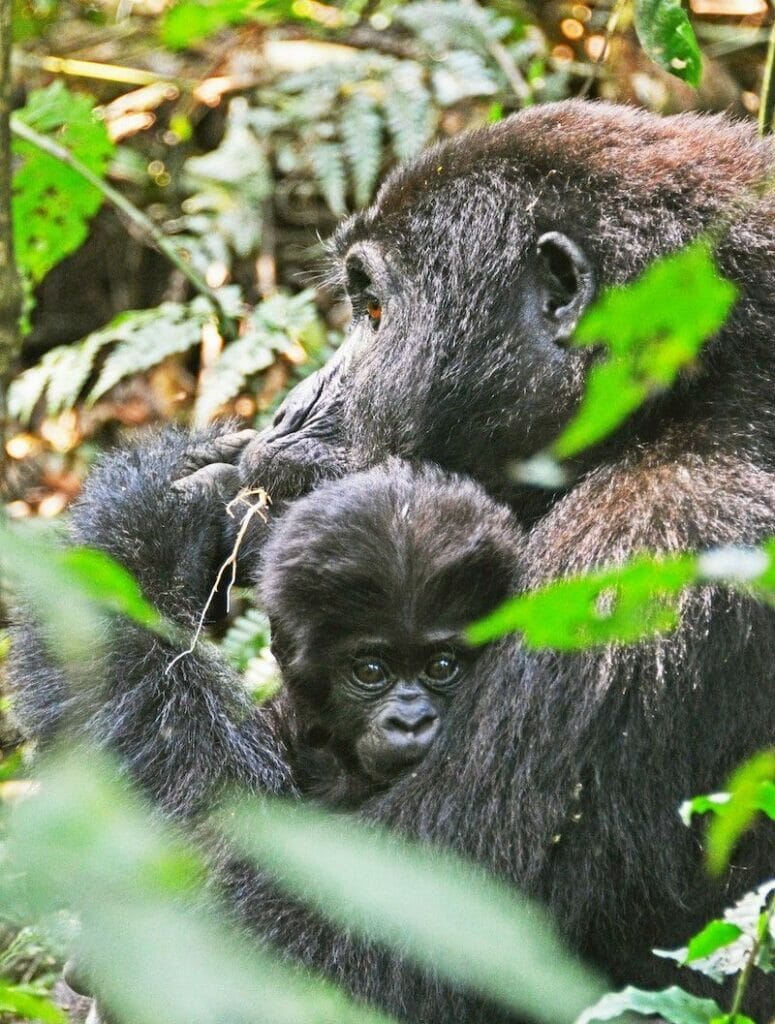
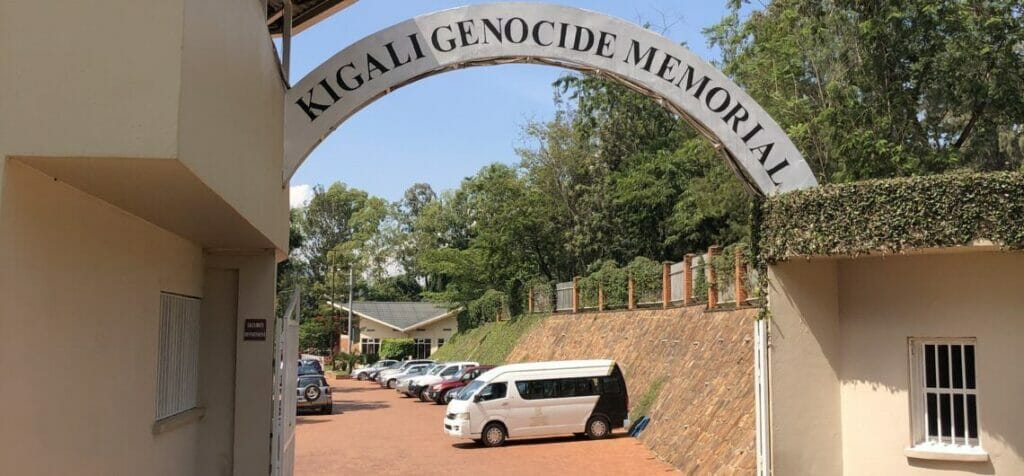
Kigali | Resilience and Rebirth in Rwanda
Rwanda’s capital city is a must-visit destination that showcases the country’s progress and resilience after the tragic genocide in 1994. Today, Kigali is one of the cleanest and most modern cities in Africa, and it offers a great mix of cultural experiences, shopping, and dining options. Visitors can tour the Genocide Memorial and learn about Rwanda’s history, visit local markets and shops, and enjoy delicious Rwandan cuisine.
Nyungwe Forest National Park | The Prime Spot For Primates
This park is a biodiverse haven that’s home to over 1,000 plant and animal species, including 13 different species of primates, such as chimpanzees, black and white colobus monkeys, and the endangered golden monkey. Visitors can go on guided hikes and treks to spot these rare animals and enjoy the park’s lush scenery, which includes waterfalls, rivers, and dense forests.
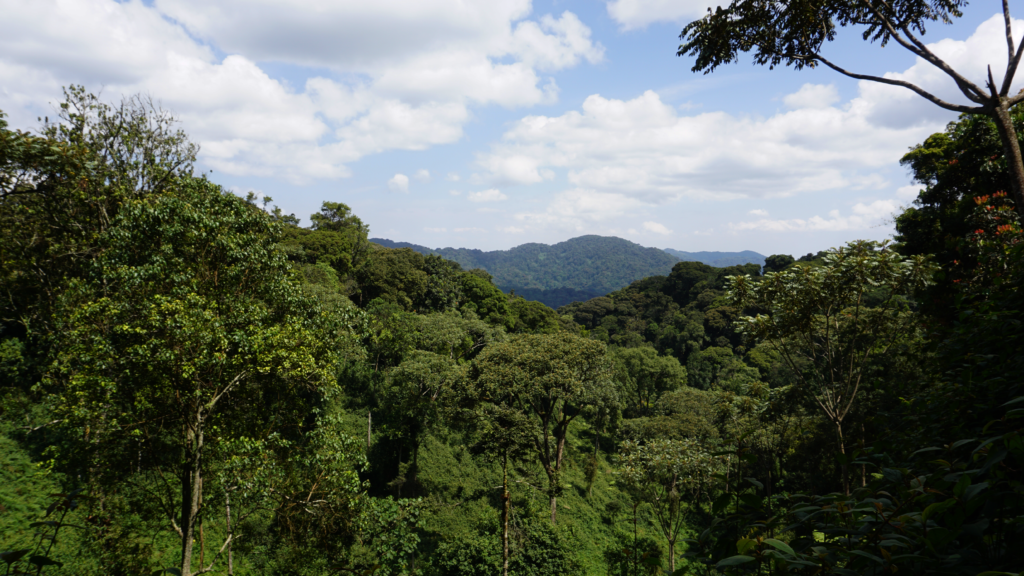
Best Travel Time For Rwanda
Rwanda is a great destination to visit all year round due to its pleasant climate. The peak season for gorilla trekking is during the dry seasons of December to February and from June to September, when the trails are easier to navigate.
The shoulder seasons of March to May and October to November offer good value for money with fewer tourists and discounts on lodges. While it may rain during the wet season from November to March, it is still possible to trek and see the gorillas, and the lush greenery and lower prices make it an attractive time to visit.
Weather
Daily temperatures range from 12°C to 27 °C, with little variation throughout the year. The mountainous north-west, where Bisate is situated, is generally cooler than the lower-lying east.
Generally speaking, wildlife is best seen mid-December to March and June to mid-November. If you’re heading to Volcanoes National Park, the best seasons to go are December to March and June through October, stretching into November.
Gorilla Permit Availability
For the months of July and August gorilla trekking permits sell out quickly, so it’s good to secure yours at least 6 months in advance.
Adventures & Experiences in Rwanda
View the highlights below, then click to read more about them.
FAQs About Rwanda
When packing for your trip to Rwanda, it’s important to keep the climate in mind. Rwanda has a temperate tropical highland climate, with daily temperatures ranging from 12°C to 27°C. Don’t forget to pack insect repellent and sunscreen, as well as any necessary medications or prescriptions. If you’re traveling during the dry season (June to September and December to February), it’s a good idea to pack lightweight clothing for warm days and cooler evenings, as well as a rain jacket or umbrella in case of occasional showers. If you’re visiting during the rainy season (March to May and October to November), it’s important to pack waterproof gear, including sturdy hiking shoes or boots, as trails can be muddy and slippery.
Finally, don’t forget to bring a camera to capture the stunning landscapes and wildlife you’ll encounter on your trip to Rwanda.
When packing for your trip to Rwanda, it’s important to keep the climate in mind. Rwanda has a temperate tropical highland climate, with daily temperatures ranging from 12°C to 27°C. Don’t forget to pack insect repellent and sunscreen, as well as any necessary medications or prescriptions. If you’re traveling during the dry season (June to September and December to February), it’s a good idea to pack lightweight clothing for warm days and cooler evenings, as well as a rain jacket or umbrella in case of occasional showers. If you’re visiting during the rainy season (March to May and October to November), it’s important to pack waterproof gear, including sturdy hiking shoes or boots, as trails can be muddy and slippery.
Finally, don’t forget to bring a camera to capture the stunning landscapes and wildlife you’ll encounter on your trip to Rwanda.
In terms of what to wear, it’s generally best to dress modestly and comfortably, particularly if you plan to visit religious sites or rural areas. In more urban areas like Kigali, casual and business attire is generally acceptable.
The forests tend to be rainy and wet so we suggest you pack warm, protective clothing and comfortable walking/hiking boots. Also a hat and lightweight parka or raincoat.
If you’re planning on seeing gorillas in Rwanda, you’ll also need to apply for a permit in advance. The permit allows you to trek into the national parks to see the gorillas in their natural habitat. Due to the limited number of permits available each day and the high demand, it’s recommended that you apply for your permit well in advance of your planned visit. Permits can be obtained through the Rwanda Development Board or through a registered tour operator. Keep in mind that permits are non-refundable, so it’s important to plan your trip carefully.
Rwanda is a landlocked country in East Africa, bordered by Uganda to the north, Tanzania to the east, Burundi to the south, and the Democratic Republic of Congo to the west. The country is known for its diverse landscapes, including rainforests, savannahs, and mountains, as well as its abundant wildlife, particularly the endangered mountain gorillas.
The best time to visit Rwanda is during the dry season, which runs from June to September and December to February. During this time, the weather is generally sunny with low humidity, making it the ideal time for gorilla trekking and other outdoor activities. The dry season also offers good wildlife viewing opportunities, as animals tend to congregate around water sources.
However, it’s worth noting that Rwanda’s high altitude means that temperatures can still be quite cool, especially in the evenings and at higher elevations. The wet season, from March to May and October to November, can make travel more difficult due to heavy rains, and gorilla trekking may be more challenging as the trails can be muddy and slippery. Nonetheless, the rainy season does have its own charm, with lush greenery and fewer crowds.
Rwandan cuisine is largely based on local produce and staples like beans, bananas, sweet potatoes, cassava, and maize. One of the most popular dishes in Rwanda is called “Ugali” or “Bugali”, which is a type of stiff porridge made from cornmeal or cassava flour, often served with beans or meat stews.
Another Rwandan staple is “Isombe,” which is a dish made with mashed cassava leaves, spinach, or other leafy greens mixed with onions, garlic, and sometimes peanut butter. “Brochettes” are also a popular dish, consisting of skewered meat (beef, goat, or chicken) grilled over charcoal and served with vegetables or fries.
Rwandan cuisine also features various dishes made with plantains, including “Matoke,” which are steamed or boiled mashed plantains, usually served with a sauce or stew. Rwandan cuisine is known for being flavorful and hearty, with a focus on using fresh, local ingredients.
Rwanda offers a wealth of experiences for travelers, from exploring its vibrant capital city, Kigali, to trekking through its four stunning national parks. In Kigali, visitors can discover the country’s rich cultural heritage at the Kigali Genocide Memorial and the Presidential Palace Museum, or explore its burgeoning art scene at the Inema Arts Center.
For a taste of Rwanda’s delicious cuisine, head to one of the city’s many restaurants serving up local favorites like brochettes and plantains. In the national parks, visitors can witness incredible wildlife, including mountain gorillas, chimpanzees, and elephants, in their natural habitats.
The stunning landscapes of Akagera National Park, Nyungwe Forest National Park, Volcanoes National Park, and Gishwati-Mukura National Park offer endless opportunities for hiking, birdwatching, and adventure. A trip to Rwanda is a truly unforgettable experience that combines rich history, vibrant culture, and unparalleled natural beauty.
Visa
When packing for Rwanda, consider bringing lightweight, breathable clothing suitable for warm and humid weather, as well as long-sleeved shirts and pants for protection against mosquitoes. A good pair of hiking boots is essential for gorilla trekking, and don’t forget to pack sunscreen, a hat, and insect repellent.
In terms of what to wear, it’s generally best to dress modestly and comfortably, particularly if you plan to visit religious sites or rural areas. In more urban areas like Kigali, casual and business attire is generally acceptable. Finally, don’t forget to bring a camera to capture the stunning landscapes and wildlife you’ll encounter on your trip to Rwanda.
Rwanda is a part of the East African Tourist Visa along with Uganda and Kenya. The visa allows multiple entries within the three countries and is valid for 90 days.
Kikooko’s Other Destinations
Let’s start planning your next safari.

Warren Ankwasa
Founder, Kikooko Africa Safaris
Our tailor-made safaris are designed to offer you the best possible value to make your East African experience a memorable one.
As a boutique tour operator, we are happy to personalise your trip budget and package according to your needs. When you’re ready, send us a message.
We’ll be in touch within 2 business days with ideas for your next adventure.
Safari Inspiration – Straight To Your Inbox
Wondering where in Africa to go on your first safari? How to budget for a safari? Want the latest baby mountain gorilla photos?
Each month, we send tips and stories straight from Kikooko’s headquarters in Entebbe, Uganda, sharing our unique perspective on where to go, what to do, and the impact your travels can have.
